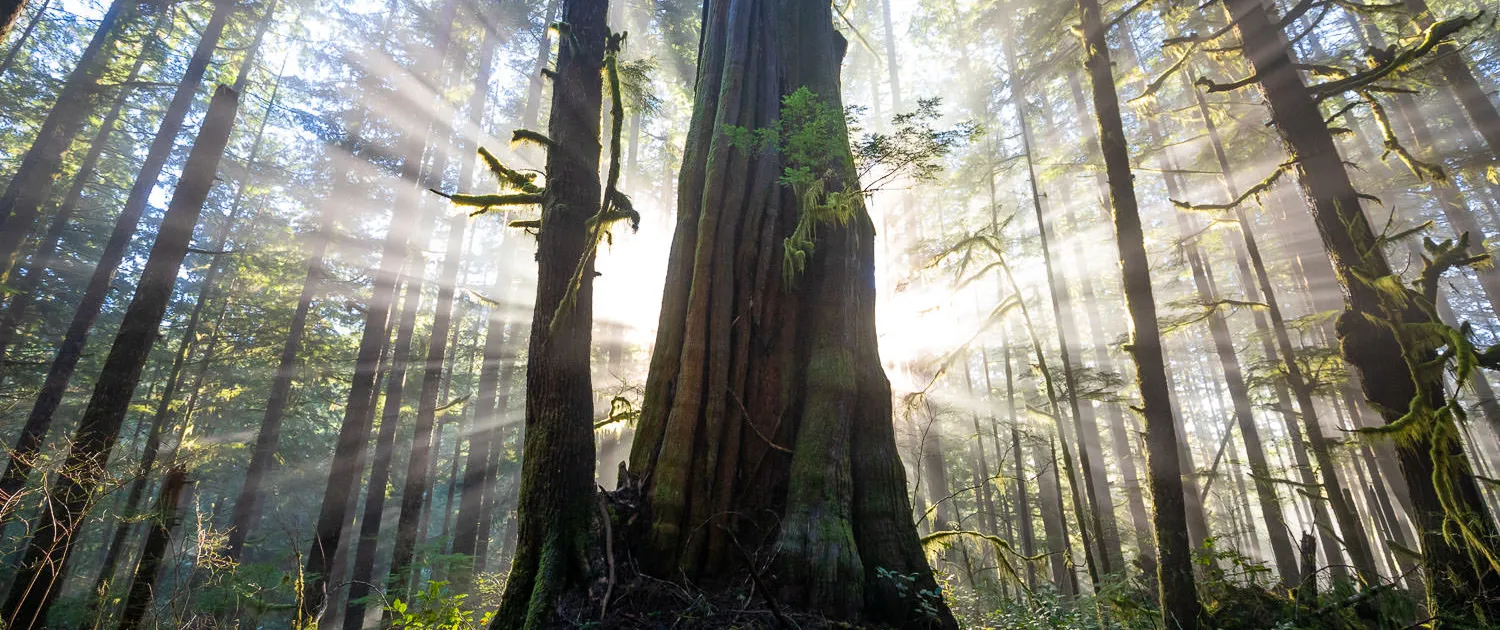
Big Lonely Doug coverage in Epoch Times
"Big Lonely Doug" is covered in a Chinese-language newspaper, the Epoch Times.
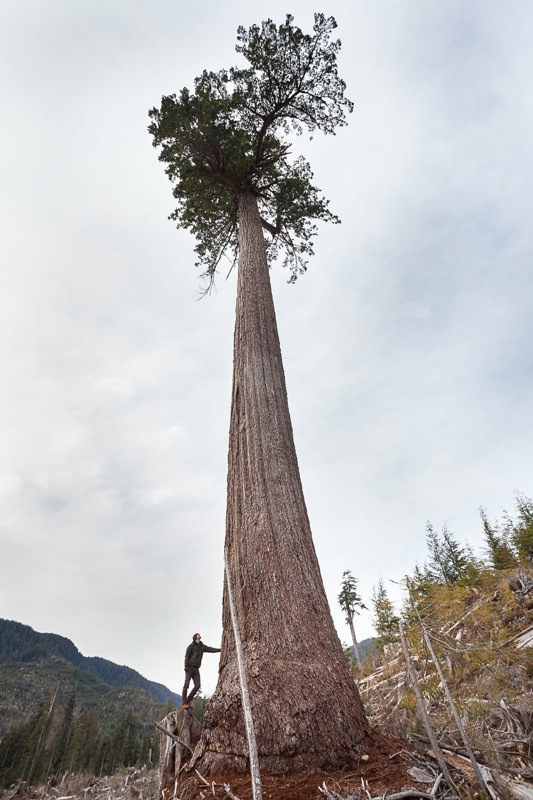
Big Lonely Doug Could Be Canada’s 2nd Largest Douglas-Fir
"The AFA also warned that the number of tall trees similar to Big Lonely Doug are growing scarce in the Pacific Northwest. 'The days of colossal trees like these are quickly coming to an end as the timber industry cherry-picks the last unprotected, valley-bottom, lower elevation ancient stands in southern B.C. where giants like this grow.'"

Vancouver Island Douglas-fir may be Canada’s second biggest
Judging from the rings on nearby stumps, the tree could be nearly 1,000 years old. "These types of colossal growth trees historically built B.C.'s logging industry. Now they're just about gone," Wu said. The group is calling for legislation to protect old-growth ecosystems and the big trees they contain. Wu noted the area where Big Lonely Doug was found now has even greater claim as the tall tree capital. The world's largest recorded Douglas-fir stands in the nearby San Juan River Valley and is measured to be 73.8 metres tall and 13.28 metres in circumference. "The biggest spruce is also there, there's the biggest cedar in Cheewhat Lake, and then there's Avatar Grove."
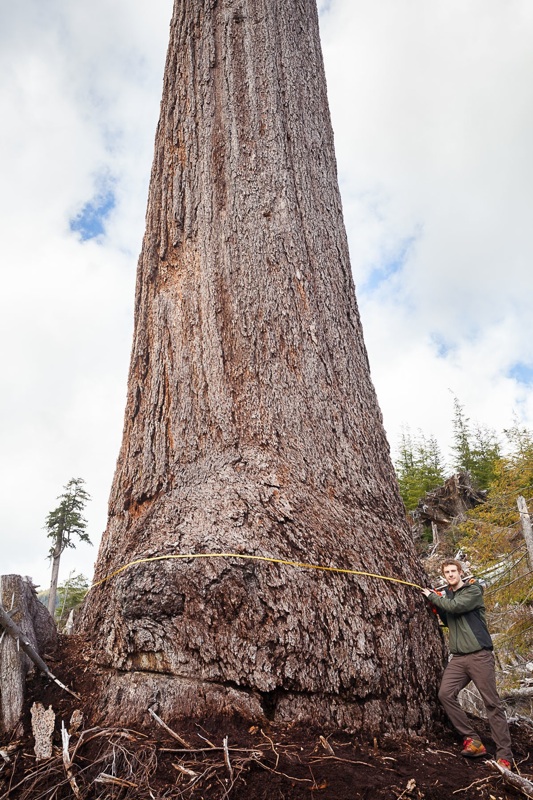
Canada’s second largest Douglas Fir tree found in B.C.
The Ancient Forest Alliance has spent years tracking down Vancouver Island’s largest trees in an effort to bring awareness to the plight of old growth forests. Claiming only 10 per cent of the productive, old growth forest on the Island is under protection, Wu believes more protection is needed. “Second-growth forests in B.C. are logged every 50 years, so if you lose something that doesn’t come back for another 1,000 years, it’s gone for good,” he said. “And all the creatures associated with these ancient forests lose their habitat.” Wu said the forest around Big Lonely Doug would have served as habitat for the endangered Queen Charlotte goshawk.

VIDEO: Canada’s 2nd Largest Fir Tree
Here's a news clip by CHEK TV on Big Lonely Doug, the 2nd largest Douglas-fir in Canada, featuring the photos of the AFA's TJ Watt.
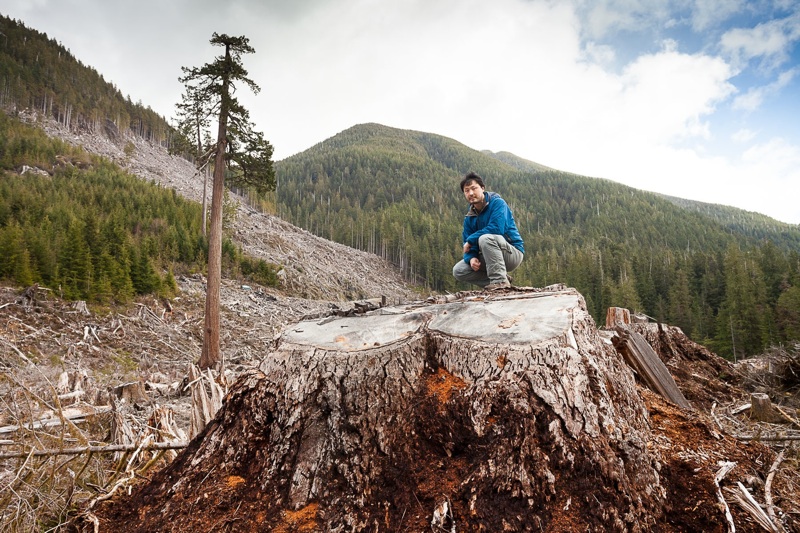
Canada’s second largest Douglas-fir discovered
Newly-measured “Big Lonely Doug” is a gargantuan, old-growth Douglas-fir tree now standing alone in a recent logging clearcut on southern Vancouver Island. Conservationists call for comprehensive provincial legislation to protect BC’s biggest trees, monumental groves, and endangered old-growth forests on the International Day of Forests today, according to a press release from Ancient Forest Alliance.
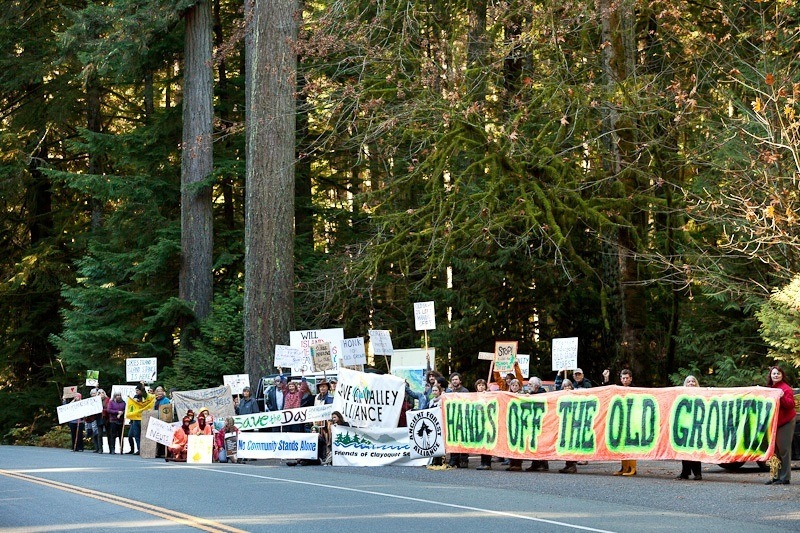
Ground Zero: Island Timberlands
Government scientists Darryn McConkey and Erica McClaren stated "negotiations ceased because we could not agree on the management regime within these boundaries. Island Timberlands wanted to extract timber resources from within UWRs [Ungulate Winter Ranges] and WHA 1-002 [Wildlife Habitat Area for endangered Queen Charlotte Goshawks]
and Ministry of Forests could not scientifically rationalize how the quality of these areas could be maintained." Ministry scientists go on to say that Island Timberlands's proposed management "did not incorporate any input from the Ministry of Environment" and "is not supported by the best available science."
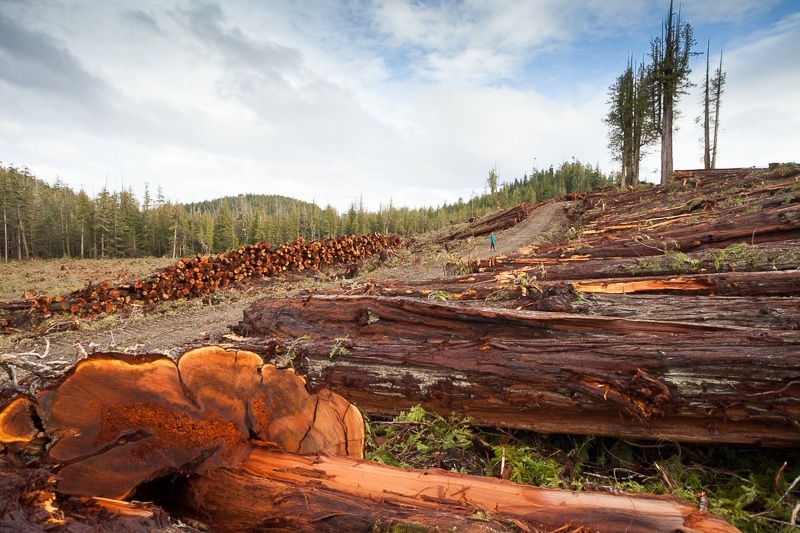
163 Years of Delay, Denial and Dishonour: Kwakiutl First Nation Marks Treaty Anniversary with Day Twelve of Protest
"The people of Kwakiutl have been left with no choice but to protest and stop Canada and BC from allowing Companies to cut and remove cedar trees from our Land," said Chief Coreen Child of Kwakiutl First Nation. Cedar is vital to the Kwakiutl people, contributing to every facet of life--from ceremony to sanctuary. "As our respected ones taught us, the trees are the 'standing people'. They have the same energy as a bear, a salmon, a mountain, or a human being. The trees in the forest are like family," said Tom Child, Lands Manager and Band Member of Kwakiutl First Nation.
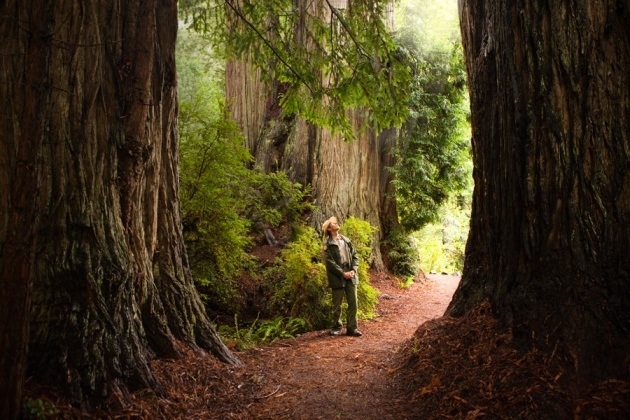
Tree growth never slows
Many foresters have long assumed that trees gradually lose their vigour as they mature, but a new analysis suggests that the larger a tree gets, the more kilos of carbon it puts on each year. "The trees that are adding the most mass are the biggest ones, and that holds pretty much everywhere on Earth that we looked," says Nathan Stephenson, an ecologist at the US Geological Survey in Three Rivers, California, and the first author of the study, which appears today in Nature. "Trees have the equivalent of an adolescent growth spurt, but it just keeps going."
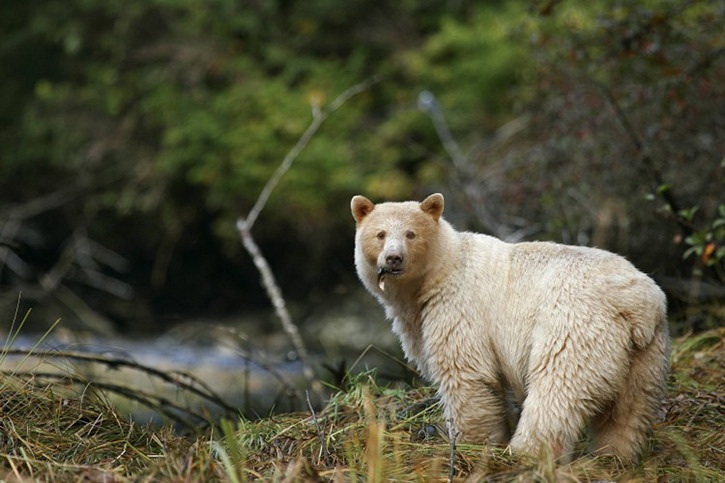
Conservation and industry reach agreement on protecting old growth in the Great Bear
The agreement -- which will preserve another 500,000 hectares of old growth -- increases forest protection to nearly 70 per cent in the mid-coast region from the 50 per cent level already protected by 2009. The addition pushes the amount of old-growth forest preserved to more than three million hectares, an area larger than Metro Vancouver.
Take Action
 Donate
Donate
Support the Ancient Forest Alliance with a one-time or monthly donation. Send a Message
Send a Message
Send an instant message to key provincial decision-makers.Get in Touch
Earth-Friendly Web Design by Fairwind Creative
- Home
- About Us
- Our Work
- Ancient Forests
- Recent News
- Photos & Media
- Map of Gallery Regions
- Themes
- Videos
- Inland Rainforest
- Mainland
- Haida Gwaii
- Sunshine Coast
- Sunshine Coast: Powell River
- Vancouver Island South
- VI South: Caycuse Watershed
- VI South: Mossy Maples
- VI South: Port Renfrew
- VI South: Port Alberni
- VI South: Walbran Valley
- Vancouver Island Central
- VI Central: Clayoquot Sound
- VI Central: Cortes Island
- VI Central: Tahsis
- Vancouver Island North
- Take Action
- Store
- Donate
